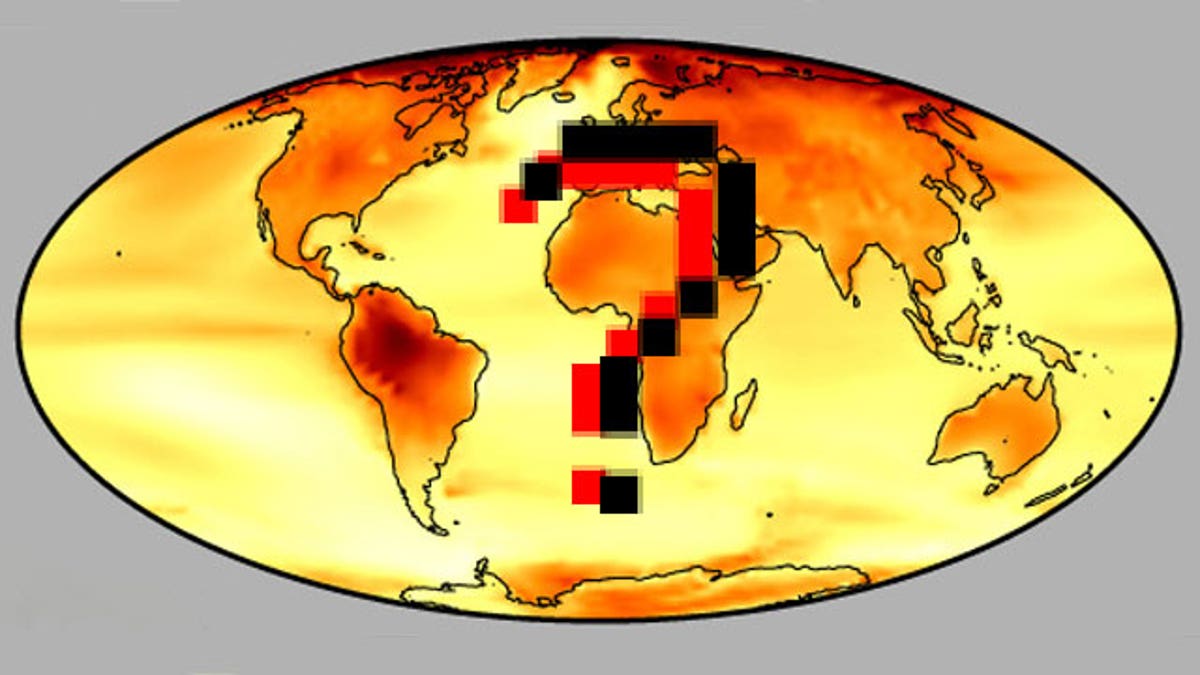
The predicted temperature changes (darker red indicating greater change) due to global warming, based on data that scientists, policymakers and the public are now questioning.
Has a central tenant of global warming just collapsed?
Climate change forecasts have for years predicted that carbon dioxide would trap heat on Earth, and increases in the gas would lead to a planetwide rise in temperatures, with devastating consequences for the environment.
But long-term data from NASA satellites seems to contradict the predictions dramatically, according to a new study.
“There is a huge discrepancy between the data and the forecasts that is especially big over the oceans,” said Dr. Roy Spencer, a research scientist at the University of Alabama in Huntsville and U.S. science team leader for the Advanced Microwave Scanning Radiometer -- basically a big thermometer flying on NASA’s Aqua satellite.
“The satellite observations suggest there is much more energy lost to space during and after warming than the climate models show,” he said. The planet isn't heating up, in other words.
James Taylor, a senior fellow for environment policy at conservative think-tank The Heartland Institute, wrote at Forbes that the meaning of the new research is clear -- and it compromises what he called a "central premise of alarmist global warming theory."
"Real-world measurements … show far less heat is being trapped in the Earth's atmosphere than the alarmist computer models predict, and far more heat is escaping into space than the alarmist computer models predict," Taylor wrote.
But with any story on the science of climate change, scientific truths are never so simple.
Andrew Dessler, a professor of atmospheric sciences at Texas A&M University, called Spencer a "controversial figure" within the climate research community. He argued that Spencer's paper is neither new nor correct.
"He's taken an incorrect model, he's tweaked it to match observations, but the conclusions you get from that are not correct," Dessler told LiveScience.com.
Many scientists believe that as the planet warms, more water vapor moves into the atmosphere. This water vapor exists as clouds, which trap more heat, creating a vicious loop.
Spencer sees it differently. He thinks that the whole cycle starts with the clouds. In other words, random increases in cloud cover cause climate warming. The cloud changes are caused by "chaos in the climate system," Spencer told LiveScience.
The truth of climate change remains murky, as always -- something even Spencer notes in his new paper.
"Atmospheric feedback diagnosis of the climate system remains an unsolved problem," he noted.








































